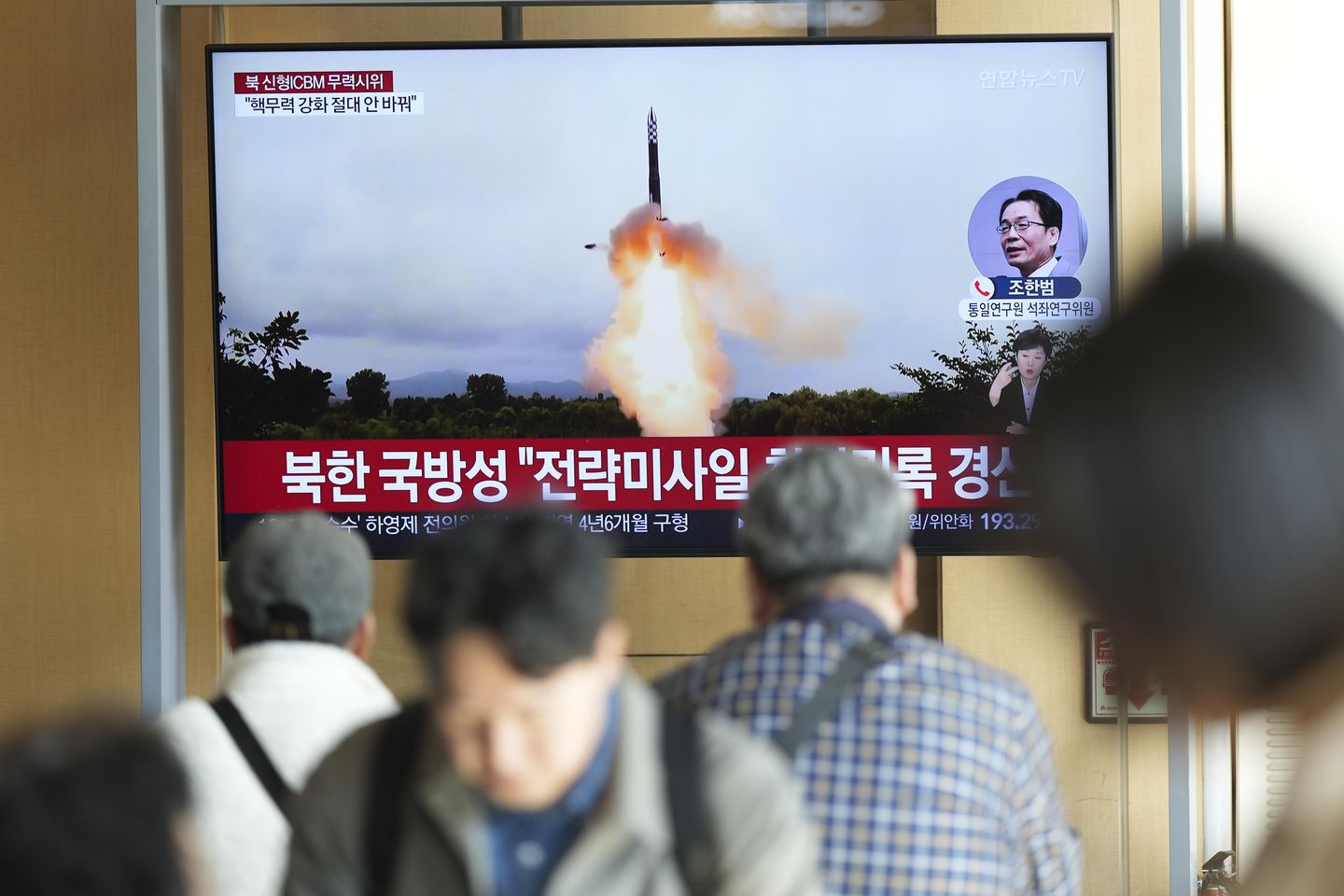On Thursday morning, tensions escalated as North Korea test-fired a new intercontinental ballistic missile with the capability to reach the continental United States. The timing of this provocative action, just five days before the U.S. presidential election, has raised concerns about the potential impact on global security and stability.
The missile test, conducted by North Korea, is seen as a direct challenge to the United States and its allies in the region. The launch is believed to have taken place from a site in North Korea, with the missile flying over Japan before landing in the Sea of Japan. This trajectory has heightened fears of a potential military confrontation in the region.
The new intercontinental ballistic missile is reported to have a range that could reach the continental United States, marking a significant advancement in North Korea’s missile capabilities. This latest test comes amid ongoing tensions between North Korea and the United States over the regime’s nuclear weapons program.
The timing of the missile test, just days before the U.S. presidential election, has added a new dimension to an already volatile situation. The test is seen as a deliberate attempt by North Korea to assert its military prowess and influence on the global stage. The Trump administration has been vocal in its criticism of North Korea’s nuclear ambitions, and this latest provocation is likely to further strain relations between the two countries.
The United States, along with its allies in the region, has condemned the missile test and called for a united response to North Korea’s destabilizing actions. The United Nations Security Council is expected to convene an emergency meeting to discuss the situation and explore potential measures to address the growing threat posed by North Korea.
The missile test has also raised concerns about the potential for miscalculation and escalation in the region. With tensions already running high between North Korea and the United States, there is a real risk of a military confrontation that could have devastating consequences for the region and the world at large.
In response to the missile test, the United States is likely to consider a range of options to address the growing threat posed by North Korea. These options could include diplomatic efforts to engage with North Korea, increased military presence in the region, and further sanctions to pressure the regime to abandon its nuclear weapons program.
The timing of the missile test, just days before the U.S. presidential election, has also raised questions about the potential impact on the election itself. The Trump administration is likely to come under increased pressure to demonstrate its ability to handle the North Korean threat, while Democratic challenger Joe Biden may seek to use the missile test as evidence of the administration’s failure to address the issue effectively.
The international community has called for a united response to the missile test, emphasizing the need for cooperation and coordination to address the growing threat posed by North Korea. The United Nations Security Council is expected to play a key role in shaping the global response to the situation, with member states urged to work together to prevent further escalation and promote peace and stability in the region.
As the world watches and waits for developments in the wake of the missile test, one thing is clear: the situation on the Korean Peninsula remains highly volatile and unpredictable. The need for a coordinated and effective response to the growing threat posed by North Korea has never been more urgent, as the stakes continue to rise and the potential for conflict looms large.









